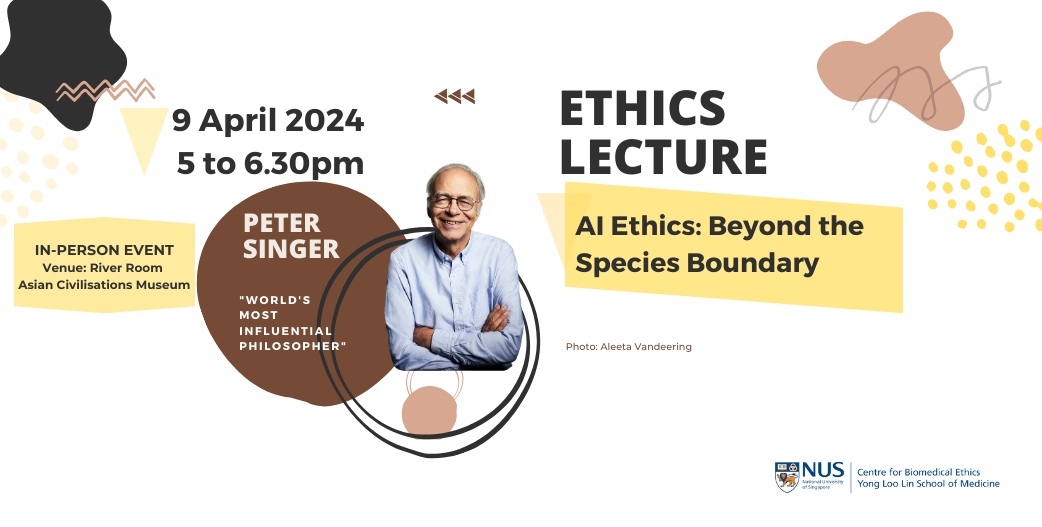AI Ethics: Beyond the Species Boundary

Professor Peter Singer
Ira W. DeCamp Professor of Bioethics at Princeton University and laureate professor at the Centre for Applied Philosophy and Public Ethics (CAPPE), University of Melbourne
Biography
Peter Singer has been bestowed the tag of “world’s most influential living philosopher” by journalists. He was born in Melbourne, Australia, in 1946, and educated at the University of Melbourne and the University of Oxford. After teaching in England, the United States and Australia, he has, since 1999, been Ira W. DeCamp Professor of Bioethics in the University Center for Human Values at Princeton University. He first became well-known internationally after the publication of Animal Liberation in 1975. Some of his other well-known books are: Practical Ethics, The Expanding Circle, How Are We to Live?, Rethinking Life and Death, Pushing Time Away, The Life You Can Save, The Point of View of the Universe (co-authored with Katarzyna de Lazari-Radek), Ethics in the Real World, and Why Vegan?
Abstract
The developing field of AI ethics has been almost entirely focused on protecting the rights and interests of humans against possible violations or harms from AI. Insofar as AI ethics has discussed any question beyond the interests of our own species, it has considered the moral status of conscious machines, which at this point are purely hypothetical. But AI is already having an impact on many millions of nonhuman animals, and that impact is likely to expand to billions. Accordingly, I shall argue that we should be giving more attention to expanding AI ethics to include the interests of animals. I will conclude with some suggestions as to how that might be done.

